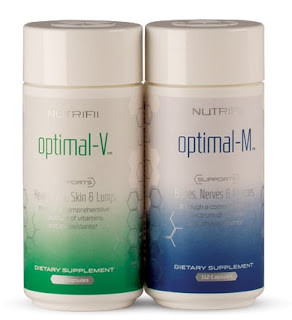Beautiful Skin Begins On The Inside
Everyone wants beautiful, soft, radiant skin. And we especially want to look our best now that we are losing weight. Or at least I do! But how do
we get it? With lotions and potions? Sure, they help, but beautiful skin starts
with healthy skin, and that begins on the inside.
The first thing you must do to get healthy skin is to
improve your diet. And wow! This was also the first to do on our weight loss journey! What a coincidence.
What you eat makes a big difference in how your skin looks
and feels. Eating foods rich in antioxidants, vitamins, and minerals is the
key. Antioxidants help combat the free radicals that attack your body, both inside
and outside, doing damage to the cells.
Many people simply do not eat a balanced diet. Getting
enough fruits and vegetables into your diet to reap the benefits is important
to skin health, and over-all health. You can do your best to include nutrient-dense
foods in your diet, but another way to help boost nutrition is to take a
multivitamin or other supplements.
Some powerful antioxidants to look for in your supplements
are beta carotene, selenium, and vitamins C, D and E. Let’s go into a little
more detail to explain how these nutrients make your skin healthy from the
inside out.
Beta Carotene
Our bodies turn beta carotene into vitamin A. This helps
your skin look healthy by keeping the membranes pliable and resilient. It also
keeps the cell structure that holds your skin up strong. Beta carotene also
helps your body resist damage from external environmental stresses, including
the sun's damaging UV rays.
Vitamin C
This is a building block for collagen, which is a protein
that helps cells renew, resulting in firm, smooth, glowing, skin. When collagen
is low, the skin cells don't turn over often enough, resulting in dry, dull,
leathery skin, which is prone to wrinkles. Exfoliation of the skin with
external vitamin C applications is one way to promote skin health. However,
taking vitamin C internally, either with food or supplements, wakes up the skin
cells from within.
Vitamin D
Natural production of vitamin D in the body starts to slow
around the age of twenty. A reasonable amount of sun exposure, about 15 minutes
a day, is needed to produce vitamin D in the body. Eating foods naturally rich
in vitamin D, such as salmon, mushrooms, and eggs, will help boost your vitamin
D. However, as we age, it's difficult to get all the vitamin D we need in just
those foods. Adding vitamin D fortified foods such as milk and yogurt to your
diet will help. But, at some point, many of us may need to take a vitamin D
supplement to ensure we have enough in our body. Vitamin D supports your skin's
elasticity, can help clear up acne, and lessens dark spots, sagging, fine
lines, and wrinkles as we age.
Vitamin E
This is a powerful antioxidant that will help protect and
repair your skin. Your body can’t produce vitamin E on its own, so you have to
be sure you get enough through food or supplements. However, when choosing a
supplement, stay away from synthetic vitamin E. Studies have indicated that
synthetic versions of vitamin E can actually do more harm than good.
Your health is as plain as the skin on your face. When you
see excessive or premature wrinkles, acne, oil, dryness, redness, sagging,
discoloration, or other skin conditions, it could be a sign of poor health.
Many people don’t realize this, and instead of curing the health problem
within, they use all sorts of magic topical products to patch things up. And
that's all they're doing – patching things up. The skin problem will continue
if the health issue isn't addressed first. The bottom line is, adding the
vitamins and minerals your body is lacking will help give your skin the beauty
treatment it needs.



Comments
Post a Comment